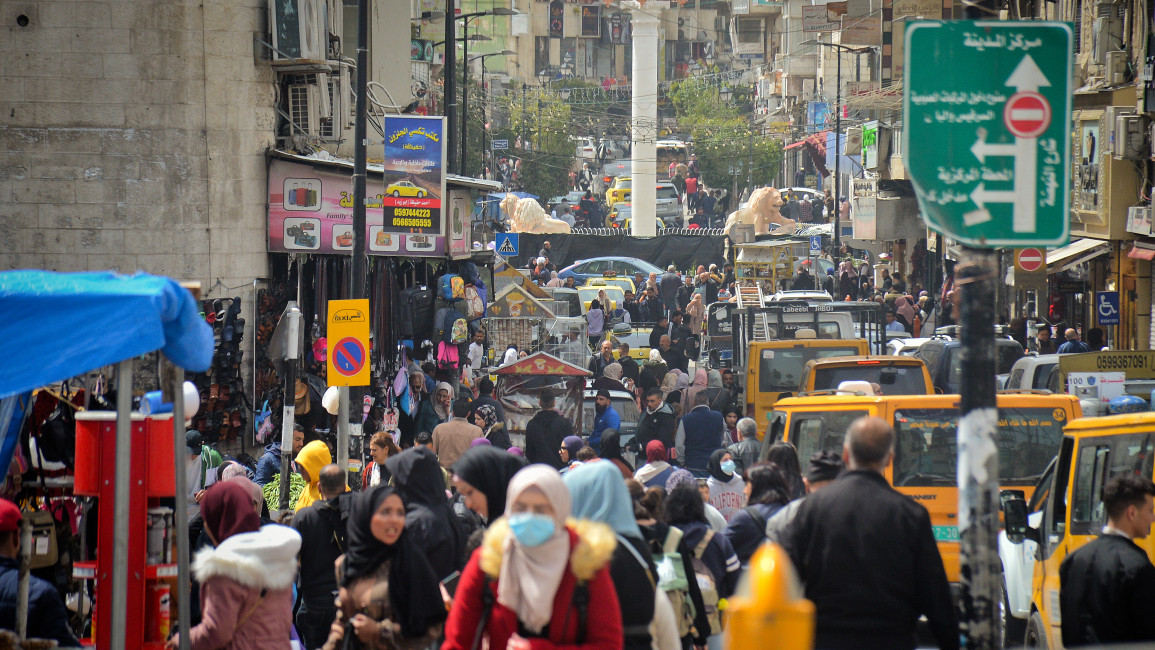Corruption is the main concern for Palestinians, says local anti-corruption watchdog
Fighting corruption in Palestinian government institutions is the leading priority for a majority of Palestinians in the West Bank and the Gaza Strip, followed by the Israeli occupation, according to a poll by AMAN, a specialised Palestinian think tank and monitoring body on corruption.
The findings of the survey were shared in Ramallah on Tuesday during AMAN's release of its annual report on corruption within institutions of the Palestinian Authority (PA).
The general director of AMAN, Abdel Qader Husseini, interpreted the poll results as "proof that Palestinians see that it is impossible to end the occupation without ending corruption."
"The first factor making corruption possible is the absence of the legislative council," said Husseini. "The second most important factor is the continuation of the Palestinian political divide between the West Bank and Gaza."
The Palestinian legislative council, inactive since 2007, was officially dissolved by the constitutional court in 2018. Elections were scheduled in May 2021, before the PA president Mahmoud Abbas called them off in April.
"The legislative council is the main oversight body on all institutions, and its absence undermines the efforts to counter corruption," said Husseini.
"Calling off legislative and presidential elections, as well as refusing to hold municipal elections in the Gaza Strip by Hamas further weakened citizens' trust in administrative and political institutions," he added.
Husseini also referred to the death of political activist and critic, Nizar Banat in June who was under the custody of Palestinian security forces, as well as the repression of protests that followed, "cracks in the Palestinian human rights system" and have "eroded the confidence of Palestinians in accountability."
In Hebron ahead of the elections:
— Marian Houk (@Marianhouk) March 27, 2022
"The streets are adorned with pictures + sayings
of the martyr Nizar Banat, who was assassinated [almost 1 year ago] after taken into custody by Palestinian Security officers"... https://t.co/fKmqk7eMAG
Other obstacles to accountability included "the consecration of lawmaking by decree, as a result of the absence of a legislative body," Jihad Harb, a senior researcher in AMAN, added during his presentation of the report's findings.
"Particularly the laws-by-decree issued by the president concerning the judicial system undermined the independence of courts," he said, referring to a law-by-decree that gives the PA president Abbas the power to appoint judges to the supreme court while also making it possible to renewable extend their three-year-period as supreme judges.
Furthermore, according to AMAN's report, there has been a lack of transparency regarding the public budget and public expenses, particularly the salaries of senior public servants.
The report also spotlighted the existence of several public agencies that operated without a regulating law, such as the PA's Energy Authority, the Palestinian Investment Fund and the National Conference for Jerusalem Affairs.
Neopatrimonialism, Corruption, and the Palestinian Authority: Pathways to Real Reform https://t.co/S3HP0RKfDn pic.twitter.com/hhRJS7M3uv
— Al-Shabaka الشبكة (@AlShabaka) February 6, 2019
In October, the Palestinian president formed a special commission for administrative reform. "The commission said that they will submit a monthly report to the president," said Harb. "However, these reports were not made public to us."
"The first of these reforms is to hold elections," said Azmi Shueibi, an advisor to AMAN's board. "Only through the election of a new legislative council can there be a public oversight over government institutions, and overcome the political division between Gaza and the West Bank."
One of AMAN's recommendations in its report is "austerity and rationalisation of public expenses", especially in the midst of a financial crisis undergone for months by the PA.
"We mean austerity on administrative expenses, especially salaries," Intisar Hamdan, the outreach director at AMAN, clarified to The New Arab.
"This should be balanced with focusing funding on social expenses, especially in the health and education sector," she added.
The PA's financial crisis has been described by experts as the worst in its history, set off by Israel's seizure of funds to Palestinian customs, the PA's main source of income.
In late February, Palestinian PM Mohammed Shtayyeh urged US Congress members to pressure Israel to release the money during a meeting in Ramallah.
In November, the European Union announced an aid package to the PA of 15.6 million euros. Yet last week, the Palestinian foreign minister, Riyadh Al-Malki told Palestinian media that there were disagreements between the PA and the EU over new conditions for financial aid, such as modifications to the Palestinian education curriculum.




